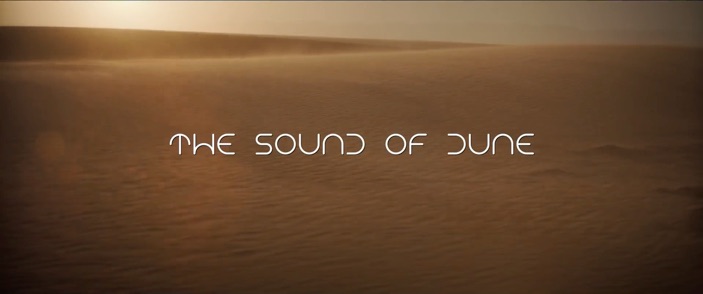The sound of Dune began with a deceptively simple mandate from Denis Villeneuve: the film should sound organic, believable and grounded in a reality we recognize. Avoid tropes, eschew “fantastical” sound, as is common in Science-Fiction, and make it sound familiar.
At the heart of his mandate lurked a sonic conundrum: give the audience the sonic thrills it expects in this genre while being true to his vision to create a world that sounds familiar. Yet Science fiction, by its nature, is defined by sights and sounds the audience has never seen or heard before. How do we accomplish this? Denis was saying, in effect, “make sounds we’ve never heard before...sound like we’ve heard them before.
As artists we hoped to create, from whole cloth, an entirely invented universe that promised the audience a unique and novel sonic experience. Yet we didn’t want to a movie that sounded “alien” or “gimmicky”, relying on heavily electronic or synthesized sounds, as is often the case in Science Fiction. The genre historically has been defined, sonically, by fantastical and never before heard sounds that speak to unknown science. Hence the heavy reliance on exotic, computerized, electronic or just plain weird noises that sound alien to the ear nor ever heard in every-day life. This approach has some level sound logic; present a world no one has heard before and the audience will be treated to a novel experience.
And therein lies a misconception; that sounds for things in science fiction, by necessity, should be made by artificial means to help convey their futuristic-ness or other-ness.
For Dune, we aspired to a different aesthetic. Create a world that was just as fantastic and unknown yet still felt “familiar”.
How did we achieve this?
A hint lies in the number of original sounds made for things never seen before. Of the 3200 unique sounds we “designed” for Dune, only 4 were made with anything other than an acoustic recording. Those 4 represented the only sounds in the film made with a synthesizer or electronic sound generator, and not sounds that started life in an acoustic reality i.e sound recordings made with and of real-world things.
To means-test this idea, Theo and I would often ask ourselves “Does this sound believable?” This was the filter through which any new sound needed to be heard. If, we felt we were leaning into a Science Fiction trope, we backed off and redesigned. Often the tell would be sound that drew attention to itself. If a sound pricked the ear and begged the audience to say “that’s cool, what was that?”, we knew it didn’t fit in our sonic universe. It was thus that we stumbled into a reliance on only using organic sounds for the sources of things that are decidedly not real or in-organic.
Even sounds that should and arguably must be created by something electronic, started life as organic materials. The Shields were a case-in-point. The static/stutter that accompanies each strike at the shields started life as a machine gun recording loaded into a granular synthesis engine. Theo was experimenting and the plugin locked up (crashed) and started emitting what would become our signature sound for the Shields. No one would recognize those sounds having started life as an acoustic recording yet they served a purpose in the process.
Oddly, the sound of Spice is entirely electronic yet a sound that we originally thought would be made from simple organic sounds like twinkly chimes, sizzling sputters, or crackling cereal (Rice Krispies just poured into milk).
I think, given the amount of fantastical sound that does exist in the movie, the idea that those sounds started life as things we hear in every-day life is compelling. From Worms made from whales to Shields made from machine guns, Dune always hewed towards believability. Even the Ornithopters, classic examples of Science Fiction transportation (with roots in the flying saucer), live sonically thanks to recordings of bug-wings, cat purrs and canvas flapping. We stand on the shoulders of giants acknowledging that some of the most iconic sounds in the genre started life as real things: Star Wars X-Wings from Elephant screams and light sabres from movie projectors.
Dune presented a new way to think about and hear science fiction. Freed from the electronic and synthetic tropes of its predecessors, we endeavored to make Dune feel wholly different and new, creating a world that could be fabulously different and “other” while still sounding organic, familiar and grounded.



